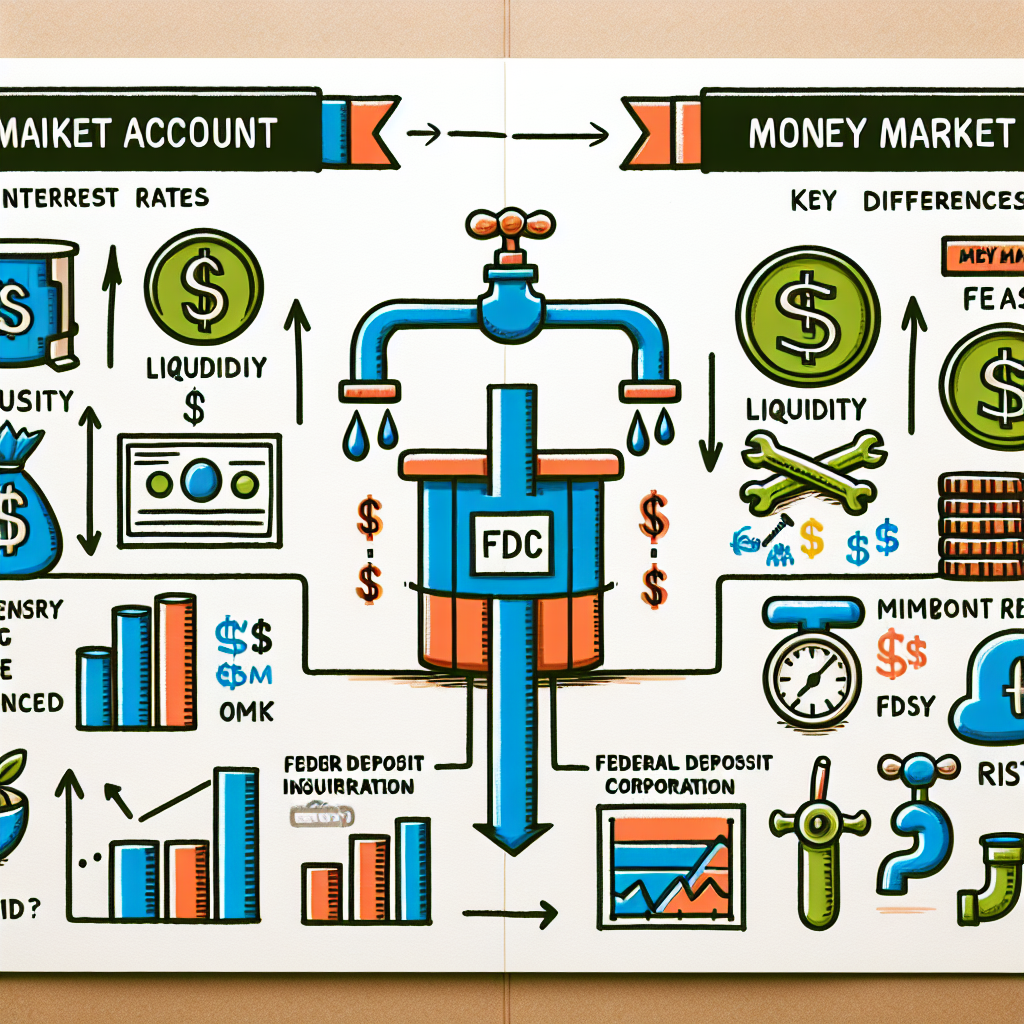Key Highlights to Remember
- Money market accounts blend the conveniences of checking and savings, carrying FDIC or NCUA protection up to $250,000 per depositor.
- Money market funds, though lacking federal insurance and regulation, stand as conservative vehicles with minimal threat to principal.
- For easy cash access and decent yields, money market accounts shine as go-to solutions for emergency reserves and near-term savings targets.
- Investors aiming to temporarily park cash inside brokerage accounts while scouting for investment openings often prefer money market funds.
Despite their similar titles and overlapping roles in helping you manage funds, these financial instruments carry subtle but significant differences. Grasping these nuances will guide you toward selecting the product that best suits your monetary landscape.
Deconstructing the Money Market Account
Often called money market deposit accounts, these hybrids currently dish out annual percentage yields that can surpass 4%, whereas traditional savings accounts linger around a mere 0.49% APY on average.
Marrying traits from both checking and savings accounts, money market accounts typically deliver higher interest rates than ordinary savings vehicles. Plus, they grant you limited check-writing privileges and debit card usage—perks a basic savings account won’t hand over. Offered by banks and credit unions—not investment firms—they’re designed as relatively accessible savings tools.
Finding the right money market account means shopping for competitive yields, minimal fees, and FDIC or NCUA safeguards that ensure your funds stay protected.
Is Your Money Safe in a Money Market Account?
If protecting your principal is front and center, rest assured: as long as your bank or credit union participates in the FDIC or NCUA safety net, your deposits receive federal cover up to $250,000, cushioning you in case the institution falters.
Getting to Know Money Market Funds
Since their birth in the 1970s, money market funds have morphed considerably. They now differ based on the underlying assets—some predominantly invest in U.S. Treasury bills, while others lean toward corporate and bank debt instruments.
Also known as “money market mutual funds,” these vehicles lack federal insurance but remain relatively low-risk, liquid investments. Instead of offering a fixed rate, the yield stems from the aggregated returns of their portfolio minus operational costs. Accessibility differs, too: you can’t simply swipe a debit card or write checks; rather, moving your money involves transferring through your brokerage, often taking one or more business days to settle.
Tax-exempt money market funds represent a specialized breed, funneling at least 80% of assets into municipal bonds. In some states, investors can even select funds concentrated on local securities, crafting a more tailored, tax-advantaged holding.
Assessing the Safety of Money Market Funds
While not federally guaranteed, these funds—and their managing firms—go to great lengths to maintain the cherished $1 net asset value (NAV). A vast reputational risk looms if that NAV ever dips below par. Still, it’s crucial to realize that no absolute promise exists to uphold that precise $1 figure.
Despite incredibly slim chances of loss, money market funds stand as some of the most dependable short-term holdings available.
| Insurance | Federally insured (FDIC/NCUA) up to $250,000 | Not insured |
| Interest | Fixed or variable stated rate | Fluctuates with underlying investments |
| Withdrawal Limits | Typically limited to six transactions per month | No formal limits on transfers or withdrawals |
| Access | Checks and debit cards allowed | Withdrawal via brokerage transfer only |
| Ideal Use | Emergency savings, short-term goals | Temporary cash holding in brokerage accounts |
Which One Fits Your Money Moves?
For those placing a premium on readily accessible cash combined with a respectable return, money market accounts stand out as a stellar choice—especially for stashing emergency funds or saving for upcoming expenses like weddings, vacations, or down payments.
On the flip side, if your stash is poised for swift deployment when market opportunities arise, money market funds offer a nimble solution. Think of them as your ready-to-go “opportunity fund.” When markets pull back or a hot investment surfaces, these funds empower you to act promptly from within your brokerage realm.
Those who prize federal guarantees and predictable interest (even if rates ebb and flow) tend to lean toward money market accounts. Meanwhile, investors comfortable with a smidge more risk, aiming to leverage market timing, find money market funds a better match.
Navigating Your Financial Choices
The devil’s in the details: understanding these distinctions arms you with the knowledge to tailor your selections to your unique fiscal situation. Once you’ve weighed the core features, it’s wise to shop around among various banks, credit unions, and brokerages, since they frequently differ in rates and supplementary benefits.








